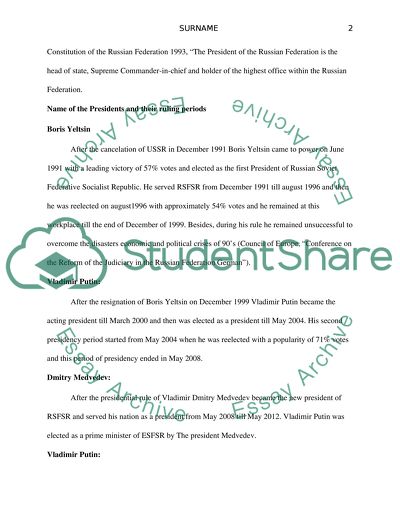Cite this document
(“The Executive Branch of the Russian Federation Essay”, n.d.)
The Executive Branch of the Russian Federation Essay. Retrieved from https://studentshare.org/history/1402864-the-executive-branch-of-the-russian-federation
The Executive Branch of the Russian Federation Essay. Retrieved from https://studentshare.org/history/1402864-the-executive-branch-of-the-russian-federation
(The Executive Branch of the Russian Federation Essay)
The Executive Branch of the Russian Federation Essay. https://studentshare.org/history/1402864-the-executive-branch-of-the-russian-federation.
The Executive Branch of the Russian Federation Essay. https://studentshare.org/history/1402864-the-executive-branch-of-the-russian-federation.
“The Executive Branch of the Russian Federation Essay”, n.d. https://studentshare.org/history/1402864-the-executive-branch-of-the-russian-federation.


